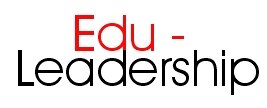

|
Pilot Performance 'Unlearning' Pilot Performance - "Unlearning" was originally featured in The CEO Refresher and is reprinted with permission.
Unlearning dysfunctional sensory perceptions, assumptions, and behaviours ... to free up conscious attention and awareness Pilots are trained to recognize the limitations of the sensory systems that can produce false perceptions of reality. A few simple maneuvers are usually enough to prove that we cannot rely on the senses when outside visual cues are obscured. Effective performance requires an ‘unlearning’ of typical perceptions and responses, and the systematic cross checking of perceptions and senses to aircraft instruments and navigation aids. Pilots are trained to recognize the limitations of the sensory systems that can produce false perceptions of reality. Contrarily, educators are often required to depend heavily on the sensory systems to determine the course of action during conflict, collaborative efforts, instruction, student behavioral issues, and general daily encounters with staff, students, parents, and the community. We often defer to the phrase "perception is reality" when dealing with the opinions, thoughts, and concerns of others, and frequently stop short of checking for accuracy of information when dealing with issues or rumors--before they get out of hand. For the pilot, a few simple maneuvers are usually enough to prove that we cannot rely on the senses when outside visual cues are obscured. Likewise, for the educator, a few inaccurate perceptions should prove well enough that we cannot rely on the senses when internal cues are obscured by lack of knowledge, or by limited experience and faulty thinking. Working effectively with adults and students during challenging moments, and especially during instruction, requires accurate thinking and sound decision making to get things turned around in a positive direction. Effective performance requires an ‘unlearning’ of typical perceptions and responses, and the systematic cross checking of perceptions and senses to reality through facts, details, and information. High performance demands it. There are many situations encountered in which the sensory systems malfunction or are liable to produce false perceptions. Illusions occur with a lack of differentiation as in whiteouts, black holes, texture, perspective, gradients, precipitation, and a variety of factors in combination. The spatial senses of positioning and balance are especially erroneous under instrument flying conditions and must be ignored to execute maneuvers accurately. The sensory limitations are further complicated by the emotional and intellectual processes that distort reality and lead to inaccurate judgments and errors. Expectations play an important role in the interpretation of information, as information is screened by known experience and images, distorting the new and unique aspects of what is in view. When there is a clear expectation of what should have been said, the listener often remembers this as being what was heard, even though something different was said. Expectations and assumptions can seriously limit the accuracy of perception, and pilots are constantly aware of the potential of error in anything less than the full attention to the operations at hand. Points worth remembering:
Situational awareness is limited by the profound emotional makeup of individuals, and the process of unlearning requires discipline to override the pervasiveness of ego, fear, and self confidence. The lack of self confidence can be moderated by training and proficiency although a healthy measure of conscious respect is appropriate to stimulate awareness and the ‘juice’ of intensity for peak performance. The limitations and distortions related to ego and over confidence however, remain constant challenges to accurate judgment and decision making. Objective awareness is further complicated by typical tendencies of human behaviour as in an increase in confidence as more information is acquired even though the information may be unreliable or irrelevant. More vivid and ‘memorable’ events tend to be overestimated, while less vivid events that are rarely experienced tend to be underestimated. Through having no assumptions, an awareness of the limitations of expectations, and in being trained to cross reference instruments to ensure accuracy, pilots perceive and interpret the environment with precision, as it is only then that the appropriate responses can be developed. "Rethinking" our thinking and thought processes during daily interactions with staff, students, parents, and the community, and in particular, during instruction, can help create a system of higher performance. A greater dependency on reliable and relevant data and information is of utmost importance, especially during these times of uncertainty and change in education. Unlearning is the key. Perception is not reality. Build confidence through accurate utilization of data, information, and facts, and by downplaying the three E's--emotions, egos, and expectations. Create a sound foundation for greater analytical thinking, decision making, and higher performance where it counts most--in the lives of children and in the learning environment. The flight environment places demands on humans far beyond normal capabilities, and requires the unlearning of dysfunctional perceptions, assumptions, and behaviours for effective performance. The learning environment places demands on humans far beyond normal capabilities, and requires the unlearning of dysfunctional perceptions, assumptions, and behaviours for effective performance. Unlearn, recreate, and rethink for greater performance. Henry K. and Bettina
Copyright 2002 Edu-Leadership.com. All rights reserved. |